|
Silence is an old friend—one I don’t often get to spend quality time with. But when I do, we give each other a knowing glance, a subtle nod, a familiar smile. It doesn’t matter how many days, weeks, or months have passed—we can pick up right where we left off without any sheepishness. Today, I come in through the front door, take off my coat, and settle into the warm embrace of silence, letting it melt any frost that has accumulated in my heart. Silence knows I’m not able to visit as often these days, but she doesn’t hold a grudge or look at me disapprovingly. She gives me a tender look and welcomes me with open arms – relishing every moment I give her to rejuvenate my soul. And she can work very quickly—a few minutes, hours, (in this case) a day. Any time spent in her company is restorative. She is generous with herself. I was reminded of that this past weekend when I attended a Silent Day of Reflection at the Catholic Apostolate Center’s headquarters at Green Hill. This little oasis sits on 14 acres just a few miles outside of the hustle and bustle of Washington, D.C. and offers ample spaces, both indoor and outdoor, for prayer and reflection. The theme of the day was The Beatitudes. The schedule was sprinkled with powerful moments of prayer: Mass, Adoration, Confession, a reflection on the day’s theme, and Lectio Divina. There was also time for quiet personal prayer. Participants had the opportunity to walk the grounds, enjoy the gardens, pray in the chapel, journal, color, or simply rest. The home of the Pallottine Fathers and Brothers of the Immaculate Conception Province is a treasure, offering a welcome place of retreat, gathering, and prayer. The Pallottines, as well as the staff of the Catholic Apostolate Center, are pleased to invite and welcome those seeking formation, personal enrichment, rejuvenation, or spiritual refreshment to Green Hill and look forward to continuing to provide opportunities to do so. As a wife, mother, blog editor, homeowner, and budding gardener, I find my days often blur in the hasty movement of time. I frequently long for silence and reflection, but do not have the time or space for it. The Silent Day of Reflection organized by the Catholic Apostolate Center was an answer to a prayer and a gift for my spiritual life. After spending the day at Green Hill, I got up from silence’s hearth reluctantly, feeling gently lulled, peaceful, held. It was a refreshing day of encounter with God amidst the beautiful backdrop of nature, and I didn’t want it to end. Not all have the wisdom to seek silence, to receive the gifts she awaits to impart. We often take her for granted, drown her out, or try to replace her—convincing ourselves she is old-fashioned, irrelevant, unnecessary, extinct. She awaits all the same, ever ancient, ever new—the immortal gift of her Creator, the vehicle of His encounter, the respite of all souls. Will you seek her? To learn more about Green Hill and upcoming events, please click here.
0 Comments
The Church celebrates National Vocation Awareness Week this year from November 5-11. According to the USCCB, it is “an annual week-long celebration of the Catholic Church in the United States dedicated to promote vocations to the priesthood, diaconate and consecrated life through prayer and education, and to renew our prayers and support for those who are considering one of these particular vocations.” In order to learn more about vocations and discernment, the Catholic Apostolate Center reached out to men currently in formation and asked them the following three questions: What were you doing before formation? What are you doing now? And what has this transition been like? Below are their answers about the transition from the collegiate atmosphere into formation for the priesthood and/or Consecrated life. What were you doing before formation? Before I entered seminary, I attended The Catholic University of America for two years, where I majored in Philosophy. I like to think that I was your average college student. I was a Resident Assistant my sophomore year; I was involved in the Knights of Columbus; I held a few on-campus jobs. I had a close group of friends who would go to daily Mass together, as well pray the rosary and spend time in Washington, D.C. I tried to be as active in college as I could. What are you doing now? I am in “College IV,” which is the equivalent to being a senior, at the Saint John Fisher Seminary program for the Diocese of Bridgeport. This is currently my second year in formation. I am working towards my Bachelor of Arts Degree in Philosophy from Sacred Heart University (SHU). I live with seven other men in the diocesan formation program. Our daily schedule begins with a Holy Hour in the morning, followed by Holy Mass and breakfast. We have classes throughout the day, some at SHU, some at the seminary. In the evening we gather for prayer and dinner. After graduation in May, I will be going to a Major Seminary to begin my four years of Theology Studies. What has this transition been like? Like any major life change, the transition into seminary formation has had its challenges. It was very hard to leave the community I was involved in at CUA. However, seminary is not something you do on your own. I learned the importance of fraternity through my involvement with the CUA Knights, and seminary formation deepened this fraternity. After adjusting to the daily schedule, and better understanding what it really means to give my life for Christ, the transition into seminary became less challenging. I have had no regrets from transferring into seminary in the middle of my undergraduate career. The transition from college into seminary, as hard as it was, taught me how important it is to trust in God’s plan, and how much joy and peace listening to Him will bring to our lives. To learn more about Vocational Discernment, please visit our Vocational Discernment Resource Page.
The Church celebrates National Vocation Awareness Week this year from November 5-11. According to the USCCB, it is “an annual week-long celebration of the Catholic Church in the United States dedicated to promote vocations to the priesthood, diaconate and consecrated life through prayer and education, and to renew our prayers and support for those who are considering one of these particular vocations.” In order to learn more about vocations and discernment, the Catholic Apostolate Center reached out to men currently in formation and asked them the following three questions: What were you doing before formation? What are you doing now? And what has this transition been like? Below are their answers about the transition from the collegiate atmosphere into formation for the priesthood and/or Consecrated life. What were you doing before formation? Besides delaying the inevitable and drinking too much coffee, I was studying Philosophy and Theology as an undergraduate student at The Catholic University of America before entering into formation. I was a Resident Assistant for three years and was involved with the Knights of Columbus Council on campus. I also had a part-time job working in the Liturgy Office at the Basilica of the National Shrine of the Immaculate Conception in D.C. This experience strengthened my desire to serve as a parish priest, and ultimately led me from my status as professional discerner to full-time seminarian. What are you doing now? I am currently studying for my home Diocese of Rockville Centre at Saint Joseph’s Seminary in Yonkers, New York (about 30 minutes north of New York City). It is the major seminary for the Archdiocese of New York and the Dioceses of Brooklyn and Rockville Centre. I am in my first year of Theology studies, which is the beginning of a four-year academic track. What has this transition been like? I have had a very smooth transition into my first year of seminary. Having no background in college seminary or pre-theology has had its own set of challenges, but my undergraduate career at Catholic University proved to be very formative. Life in seminary is a structured vocational program, though it is designed for your benefit. It is a consolation knowing that where the formation faculty leads me will result in spiritual progress and preparedness for priestly ministry. There is amazing freedom that comes in submitting to God’s will and allowing him to supply each day with new excitement and joy. To learn more about Vocational Discernment, please visit our Vocational Discernment Resource Page.
Today we celebrate the sixth anniversary of the Catholic Apostolate Center. In these six years, we have been to countless conferences; developed relationships with numerous national organizations and dioceses; shared thousands of saint images on Facebook; emailed hundreds of newsletters; and collaborated with bishops, priests, religious, diocesan officials, lay ministers, and Catholic leaders from around the world. In these six years, we have appreciated the collaboration with each and every one of you and look forward to continued development of programs and resources to revive faith, rekindle charity, and form apostles.
In celebration of this anniversary, we invite you to view our updated introduction video of the Center. This video highlights the mission of the Center and our constant desire to live as missionary disciples. Please be assured of our prayers for you through the intercession of Mary, Queen of Apostles and St. Vincent Pallotti, patron saints of the Catholic Apostolate Center. May the Charity of Chris urge us on! When I was in 8th grade, I helped teach for my parish’s religious education program and counted the hours toward my required community service time before receiving the Sacrament of Confirmation. I was an assistant for the 5th grade, and I thought it was the coolest thing. I could share with the class what I knew about the Church, even teaching them at one point how to pray the Rosary. Looking back, it seems like I was destined to teach in a Catholic school! After college, I began working at my current school in the Archdiocese of Washington (ADW), where I continue to teach and share my faith with the students. To this day, I continue to teach religion. I strive to form my students as disciples according to six elements of Catholic life: Knowledge of the Faith, Liturgy and Sacraments, Morality, Prayer, Education for Living in Christian Community, and Evangelization and Apostolic Life.
For catechists who actively pass on the Word of God to others, teaching the faith can become almost second nature. For instance, at my school, we incorporate core Jesuit principles into the curriculum each day and reflect on our own actions through prayer. In my pre-K classroom, we use these principles to talk about kindness and loving others as St. Ignatius taught. In a special way, my students are learning how to be good friends and love others the way Jesus did. In the Archdiocese of Washington (ADW), the religious curriculum has standards by which its content is measured and assessed—like any other subject area in school. In fact, ADW is trying to support catechists to do more to collaborate and keep kids engaged and excited about learning their faith. Professional development of catechists is crucial to a school, parish, or community. Learning how to be better witnesses of the faith ensures that our children are receiving the best formation of conscience they can get. Although there are people certified and educated to teach as catechists, most of us are already fulfilling that duty as faith-filled adults in the Church who witness to and spread the Gospel. Below is a list I have compiled of a description of a catechist. After reading it, do you feel called to become one?
For more information, we invite you to view the following webinar at the bottom of the page:
Question for Reflection: How can you teach the faith to others in your everyday life? In 1964, the Second Vatican Council affirmed in the document Lumen Gentium, “that all the faithful of Christ of whatever rank or status, are called to the fullness of the Christian life and to the perfection of charity.” The Catholic Apostolate Center continues to promote this truth in the 21st century by providing active Catholics the tools and resources to share Christ’s loving message of salvation. In this way, the Center’s mission focuses on reviving faith, rekindling charity, and forming apostles who give witness to this fullness of the Christian life by embracing their baptismal call. Father Frank S. Donio, S.A.C., Director of the Center, explains, “The Catholic Apostolate Center is rooted in the spirituality of St. Vincent Pallotti, who believed that all are called to be apostles and to be co-responsible for the mission of Christ and his Church.” Founded in 2011 as a ministry of the Society of the Catholic Apostolate (Pallottines),Immaculate Conception Province, the Catholic Apostolate Center develops resources that the faithful, particularly those in ministry, can use to aid in their own evangelization efforts. The Center responds to the current needs of the Church through developing, in collaboration with dioceses and other institutions and organizations, formation programs for the New Evangelization. It assists pastoral leaders in deepening collaboration with one another and provides formation opportunities for members and collaborators of the Union of Catholic Apostolate. The Center accomplishes this bold mission through online resource pages, webinars, podcasts, and blogs, as well as through the partnerships with organizations like the United States Conference of Catholic Bishops (USCCB), the Archdiocese of Washington, Catholic Volunteer Network, and St. Joseph’s College of Maine, among others. Furthermore, they host seminars, webinars, and presentations as well as providing consulting services. “While we do produce our own material, and have a large amount of no-cost digital resources, the Center collaborates with many national and international Catholic organizations, dioceses, and the USCCB on a variety of projects to assist active Catholics in living as missionary disciples,” Donio said. In the spirit of St. Vincent Pallotti, the Center equips Catholics to “go out” empowered with the resources and knowledge to propagate the faith for the New Evangelization. St. Vincent Pallotti founded the Union of Catholic Apostolate, an association to revive faith and rekindle charity among Catholics and propagate the faith to all. St. Vincent Pallotti encouraged collaboration among the clergy, religious, and the laity in the 1800s at time in history when many thought the work of the Church should be left to priests and religious. The Catholic Apostolate Center looks to the life of St. Vincent Pallotti for inspiration as it strives to form collaborative relationships with more organizations, further develop its formation resources, and ultimately, empower all the faithful - clergy and lay - to live out their baptismal call. The Catholic Apostolate Center specifically entrusts its work of forming apostles to Mary, “Queen of Apostles” because of her invaluable role in building the early church and encouraging the first apostles. The Center looks to the Blessed Mother as the perfect model of discipleship, apostolic work, and charity as we strive to lead Christ’s followers closer to her Son. Formation leads to action - this is a core belief that influences the work of the Center. Throughout his papacy, Pope Francis has reminded us to be comprised of both action and word, to encourage a spirit of accompaniment and encounter. “Go out,” he says. “Go out and share your testimony, go out and interact with your brothers, go out and share, go out and ask.” By forming the laity to “go out,” the Catholic Apostolate Center hopes to empower the Body of Christ to collaboratively carry out the mission entrusted to the Church by Jesus Christ. This article was originally published at CruxNow.com and can be viewed here. Kate Fowler is the Blog Editor for the Catholic Apostolate Center.
Chris Pierno is the Advancement and Marketing Manager for the Catholic Apostolate Center. On July 1-4, 2017, Catholic dioceses and organizations reflecting the diversity of the Catholic Church in the United States will convene for a Convocation of Catholic Leaders in Orlando, FL. Approximately 3,000 people representing over 155 dioceses and numerous church organizations will meet to discuss methods and ideas for making Pope Francis’ vision of a “missionary option” for Church ministries and activities a reality in the United States. This unprecedented event is being called and organized by the US bishops, signifying the importance of such an event as a necessary step for Catholics in the Church today to live as missionary disciples filled with the “Joy of the Gospel.” While those who are attending the Convocation are already Church leaders, they look to the guidance of the bishops in order to help them tackle their particular pastoral challenges and foster opportunities for growth.
The Catholic Apostolate Center has been invited by the United States Conference of Catholic Bishops (USCCB) to collaborate on the planning of the Convocation, as well as to attend as a sponsor and exhibitor in order to share our ministry and promote our work of fostering evangelization. Center Director, Fr. Frank Donio, S.A.C. will be speaking at the Convocation to help guide and foster dialogue among the participants. The Center is also collaborating with the USCCB to develop and distribute the Participant Guidebook and Journal and collaborate with them on pre-Convocation webinars. One webinar provides the theological basis of the Convocation. Another webinar discusses the practical layout and methodology of the event. The mission of the Catholic Apostolate Center is to revive faith, rekindle charity, and form apostles through the lens of Pallottine spirituality. Our patron, St. Vincent Pallotti, believed that all the members of the Church are called to collaborate in spreading the Gospel. “The Catholic Apostolate, that is, the universal apostolate, which is common to all classes of people, consists in doing all that one must and can do for the great glory of God and for one’s own salvation and that of one’s neighbor,” St. Vincent Pallotti said. The Catholic Apostolate Center further hopes to help dioceses, organizations, and ministries better collaborate with each other and find ways to share the resources we have as a Church. The Convocation of Catholic Leaders will be a monumental event for the Church in the United States which we hope will bear much fruit. For those attending, I invite you to read, reflect, and pray for the openness of the Holy Spirit in guiding your participation during the Convocation. We also invite attendees to visit our exhibit to learn more about our resources and work. At the Catholic Apostolate Center, we are always interested in collaborating and working together to form apostles for our Church. For those that will not be able to attend, please pray for the participants and organizers of the Convocation, that they may be open to the Holy Spirit to guide their efforts. May he help us become missionary disciples, or as our Patron St. Vincent Pallotti would say, apostles, in the United States. To learn more about the Convocation for Catholic Leaders, please visit the USCCB website by clicking here. For additional information and resources, we invite you to visit our website by clicking here. When I was in 8th grade, I helped teach for my parish’s religious education program and counted the hours toward my required community service time before receiving the Sacrament of Confirmation. I was an assistant for the 5th grade, and I thought it was the coolest thing. I could share with the class what I knew about the Church, even teaching them at one point how to pray the Rosary. Looking back, it seems like I was destined to teach in a Catholic school! After college, I began working at my current school in the Archdiocese of Washington (ADW), where I continue to teach and share my faith with the students. To this day, I continue to teach religion. I strive to form my students as disciples according to six elements of Catholic life: Knowledge of the Faith, Liturgy and Sacraments, Morality, Prayer, Education for Living in Christian Community, and Evangelization and Apostolic Life.
For catechists who actively pass on the Word of God to others, teaching the faith can become almost second nature. For instance, at my school, we incorporate core Jesuit principles into the curriculum each day and reflect on our own actions through prayer. In my pre-K classroom, we use these principles to talk about kindness and loving others as St. Ignatius taught. In a special way, my students are learning how to be good friends and love others the way Jesus did. In the Archdiocese of Washington (ADW), the religious curriculum has standards by which its content is measured and assessed—like any other subject area in school. In fact, ADW is trying to support catechists to do more to collaborate and keep kids engaged and excited about learning their faith. Professional development of catechists is crucial to a school, parish, or community. Learning how to be better witnesses of the faith ensures that our children are receiving the best formation of conscience they can get. Although there are people certified and educated to teach as catechists, most of us are already fulfilling that duty as faith-filled adults in the Church who witness to and spread the Gospel. Below is a list I have compiled of a description of a catechist. After reading it, do you feel called to become one?
For more information, we invite you to view the following webinar at the bottom of the page:
Question for Reflection: How can you teach the faith to others in your everyday life? Where has the time gone? I’ve been asking myself this question over and over again throughout the past few days. Having just graduated from college, I find it quite surreal that my life is no longer dominated by the academic schedule. I almost feel as if I am a new person, having joined the “real world” as a young adult. It is exciting to have entered a new chapter in my life and exercise control over fulfilling my desires and goals in life. During major times of transition, I think it is beneficial to take the time to seriously reflect on all who have supported me along the way and up to where I am now: typing this after a day’s work at the office in a new city. As senior year drew to a close, I recalled moments not only of joy but also of sadness and difficulty. Remembering who it was that remained at my side during those moments of formation and struggle, and valuing their friendship and presence in my life, causes me to thank God for those college experiences. Those relationships caused me to glimpse the faithfulness and love of God. Sometimes, I can’t help but wonder whom I have touched with my own presence or friendship. As a human being, I am imperfect. I experience weakness. I worry. I have doubts and deficiencies. While these are important to acknowledge, I cannot waste time dwelling on them. In my shortcomings, my relationships with others may be strained, but there is also an opportunity to grow even closer to one another. Similarly, one’s waywardness is always ready to be met with God’s faithfulness: “If we are unfaithful he remains faithful, for he cannot deny himself” (2 Tim 2:13). We are called to model God’s faithfulness in our own friendships. The authenticity of such a relationship is made plain especially in times of difficulty. I like to recall Job’s friends who, upon seeing his experience of great loss, “sat down upon the ground with him seven days and seven nights, but none of them spoke a word to him; for they saw how great was his suffering” (Job 2:13). Similarly, “Two are better than one… If the one falls, the other will help the fallen one. But woe to the solitary person! If that one should fall, there is no other to help” (Eccl 4:9). There were many times throughout college that people “sat down upon the ground” with me and many times I did the same for others. I truly saw how “two are better than one,”—how we need one another to help us when we fall. Talking to my peers as graduation approached, I heard and shared thoughts of both excitement and apprehension. Graduation sometimes resembles the “real world” knocking on one’s door with a collection call. I agreed with this somber view until I attended a retreat where I heard it said that the “real world” touted by society was nothing more than a deprivation of what readily exists for the faithful: the Church. At every moment, God walks with us. He readily comforts us, listens to us, calls to us, and freely and completely offers His perfect love to us. While the world we live in can be unforgiving, rough, and fatiguing, let us recall Who walks beside us and never fails us. We are called to imitate this unfailing love and walk beside our brothers and sisters. Our lives are spent in pilgrimage seeking God. Along the way, we often encounter others who are seeking the same end. Sharing this pursuit, then, becomes a shared labor of faithfulness and strength. We are weak on our own, but together, as we experience in the Church, strength and comfort are found to help us journey on. As one of my friends reflected, “[T]he journey to heaven is not a solo trek. You seek to bring everyone with you. If one person falls, you travel to him or her, and help them get up, and you carry along together towards the destination. This is what God has entrusted us to do, to reveal such love as His love.” God is faithful, especially in times of great change. As I begin this new chapter of my life, I strive to reveal the faithful love of God to those I encounter. May we, at every moment, endeavor to do the same! Question for Reflection: How do you turn to God in times of transition? "Remember that the Christian life is one of action; not of speech and daydreams. Let there be few words and many deeds, and let them be done well." – St. Vincent Pallotti Blessings to all as we are about to celebrate the feast of St. Vincent Pallotti on January 22nd! Some may ask, “Who is that?” I am glad that you asked. St. Vincent Pallotti and his charism are the reason why the Catholic Apostolate Center exists. He was a priest of the Diocese of Rome in the first half of the nineteenth century. His ministry spanned the poor to popes. It did not matter what a person was, but who the person was, an image and likeness of God, the Infinite Love. He saw all people as gifted by God with talents that were meant to be shared. On January 9, 1835, St. Vincent Pallotti was inspired to found the Union of Catholic Apostolate, a collaborative association of lay people, religious, and clergy, who were called to assist in the missionary efforts of the Church through all apostolic methods and means, “revive, maintain, and increase the faith” of Catholics, and be an “institution of universal charity”. Over time, a community of priests and brothers and communities of sisters developed as well. Members of the Union of Catholic Apostolate are now in over 50 countries around the world. The Catholic Apostolate Center, a ministry of Pallotti’s community of priests and brothers, is a 21st century expression of his charism that works to revive faith, rekindle charity, and form apostles. Looking the other way when others were in need was not possible for Pallotti and his life calls all, particularly Catholics, to be more than simply passive participants in the Faith. Instead, we are called to be apostles, sent by Jesus Christ out into the world to spread the Gospel and charitably bring healing and consolation in the midst of brokenness and suffering. In many ways, it is fitting that most years (although, this year on January 27th) those who March for Life in the streets of Washington, D.C. are doing so on his feast day. The marchers not only give witness, but also voice to those who are voiceless, unborn children. The most vulnerable and in need were closest to the heart of St. Vincent Pallotti as he and his companions went into the streets of Rome to care for them day after day and night after night. On January 22, 1850, he died from a respiratory illness because he had braved the elements to continue his work after giving away his cloak to a poor elderly woman on a cold, rainy night. St. Vincent Pallotti understood well what Pope Francis teaches us today: “Jesus, the evangelizer par excellence and the Gospel in person, identifies especially with the little ones (cf. Mt 25:40). This reminds us Christians that we are called to care for the vulnerable of the earth” (Evangelii Gaudium, n. 209) We invite you to learn more about St. Vincent by downloading our Pallotti App, visiting our new Pallotti Portal, viewing this new video, or listening to this new podcast. May the Charity of Christ urge us on!
“I extend my greetings to all the members of the Society of Catholic Apostolate and to all who share the charism of St. Vincent Pallotti. He has become an enlightening and inspiring beacon in the Church. His charism is a precious gift of the Holy Spirit, because it has given rise to and continues to call forth various forms of apostolic life and animates the faithful to actively engage in Gospel witness.” – Pope Francis (Audience with Members of the XXI General Assembly of the Society of the Catholic Apostolate, October 10, 2016) Today is the 5th Anniversary of the Catholic Apostolate Center. It is a ministry of the Immaculate Conception Province of the Society of the Catholic Apostolate (Pallottine Fathers and Brothers). The Center came into existence through the inspiration of the Holy Spirit and the discernment of the Pallottines in collaboration with many others. Last week, I sat in the Clementine Hall of the Apostolic Palace in Vatican City and listened to Pope Francis speak the words quoted above. The charism of St. Vincent Pallotti of reviving faith, rekindling charity, and forming apostles is what permeates all that the Catholic Apostolate Center does. Our mission is a simply a 21st century way of expressing this charism. The Center is responding to the call of Pope Francis to the Pallottines: “I encourage you to push forward along your path with joy and hope, committing yourselves with all your heart and with all your strength, so that the charism of your Founder bear abundant fruit also in our time. He loved to repeat that the call to the apostolate is not reserved to some, but is addressed to everyone… to operate with renewed vigor to reawaken faith and rekindle charity, especially among the most vulnerable segments of the population, the spiritually and materially poor.” On behalf of the Pallottines, the Board, Staff, Collaborators, and Advisors of the Catholic Apostolate Center, I offer thanks to all of those who collaborate with us, especially our affiliates, those who follow us on social media, utilize our resources, develop projects with us, and give generously in a variety of ways. Calling all to be co-responsible for the mission of Christ and his Church and to work apostolically in a collaborative way is a central element of the charism of St. Vincent Pallotti. We look forward to the years to come and plan to provide even more resources that will assist in the formation of “authentic apostles of Christ in the Church and in the world” (St. John Paul II). Please know that we at the Center are in prayerful remembrance of all those who are assisted by our ministry. May we be in prayerful solidarity with one another as Pope Francis is with us all. “I entrust all of you to the protection of Mary Most Holy, whom St. Vincent Pallotti venerated especially as Queen of the Apostles. Her good example of apostolic zeal and perfect charity, invites us to pray without ceasing to invoke the gifts of the Holy Spirit upon the apostles of today, so that the Gospel of her Son can be proclaimed in every part of the world.” May the Charity of Christ Urge Us On! In God, the Infinite Love, Fr. Frank
“I was dazzled by a girl I met… I was struck by her beauty, her spirit. I was bowled over for quite a while, she made my head spin.”
Yes, even Pope Francis has experienced falling in love. Much more than just hormones, neurochemicals, emotions, or a pyscho-physical state, love is an ongoing relationship between two people. It is stable, yet grows and is lasting; it offers affection, support, help, and hope (cf. 1 Corinthians 13). If a relationship is not rooted in this love, how can it last? Just as God’s love is total and without end, so must be the love upon which a family is based. In a world where too many settle for an empty version of love and the family unit is under attacksuffering difficulty, it becomes critical that we remember the sacredness of the sacrament of marriage and its purpose as instituted by God. God’s first command to Adam and Eve was to “be fruitful and multiply” (Genesis 1:28). He had not joined our first parents solely for their own benefit or pleasure. Their every act in God’s new creation was to glory and praise Him. Similarly, a man and a woman do not enter into a marriage for their own happiness, but to “love and honor” each other “in good times and in bad… all the days of [their] life.” The couple reflects God’s bearing fruit in their lives, a continuous sign of God’s Power in the world. Everything they do, be it chores, budgeting, cooking, or relaxing, whether separately or together, is a living out of their sacrament— even the smallest acts in the life of a married couple have power hidden within them to make them holy. As married life is the ground of holiness, love is the seed planted by God. Life, together with its agonies and joys, pain and sacrifices, frustrations and tensions, moments of exultation and despair, all act as the rain and sun, thunder and lightning on a young sprout. Of course, disagreements are a normal part of the married lifestyle as well as the human condition. No one is perfect but the faults and weaknesses of each one are compensated for by the other’s virtues. Each possesses what the other lacks. Rather than causing a rift between the two, this results in a loving dependence on each other for spiritual growth and transformation. By forming a habit of looking at each other in a sacramental way— seeing the beauty of God in each other’s souls and seeking to enhance that beauty by building up each other— a married couple reflects God’s blessings and love. The Catechism of the Catholic Church acknowledges this by making no distinction between the roles of the man and woman in the family (see CCC 2221-2231). Rather, both are called to provide the good example and instruction of both academic reason and moral and spiritual formation to their offspring, who in turn contribute to the growth in holiness of the parents (see CCC 2227). Being married to one another, the man and his wife are entrusted with the welfare of the family— woe to those who neglect this responsibility (see 1 Timothy 5:8)! The purpose of raising of a family is not to give glory to oneself but to selflessly assist each other in reaching the Kingdom of God. This is no easy task, as it is a great challenge to devote one’s life to those around him/her! To do this requires great love, the strongest bonding force, and we are reminded of this in a reading commonly used in weddings: Husbands, love your wives, just as Christ also loved the church and gave Himself up for her, so that He might sanctify her, having cleansed her by the washing of water with the word, that He might present to Himself the church in all her glory, having no spot or wrinkle or any such thing; but that she would be holy and blameless. So husbands ought also to love their own wives as their own bodies. He who loves his own wife loves himself; for no one ever hated his own flesh, but nourishes and cherishes it, just as Christ also does the church, because we are members of His body. “For this reason a man shall leave his father and mother and shall be joined to his wife, and the two shall become one flesh.” This mystery is great; but I am speaking with reference to Christ and the church. Nevertheless, each individual among you also is to love his own wife even as himself, and the wife must see to it that she respects her husband. (Ephesians 5:25-33) Finally, Matrimony responds to a specific vocation and must be remembered as sacred. It is a consecration: the man and woman are consecrated in their love. The spouses, then, are entrusted with a mission, so that by starting with the simple ordinary things of life they may make visible and known the love with which Christ loves His Church— that is continuing to give His life for her in fidelity and service. In spite of the difficulties experienced by married couples, the important thing to remember is the nurturing of their bond with God, Who is the foundation of and the cause of joy in the marital bond. Pope Francis, though he ultimately gave himself to the ultimate Spouse, offers these words of advice for preserving “what God has joined, [and] men must not divide”: There are three words that always need to be said, three words that need to be said at home: may I, thank you, and sorry. The three magic words. May I: so as not to be intrusive in the life of the spouses. May I, but how does it seem to you? May I, please allow me. Thank you: to thank one’s spouse; thank you for what you did for me, thank you for this. That beauty of giving thanks! And since we all make mistakes, that other word which is a bit hard to say but which needs to be said: sorry. Please, thank you, and sorry. With these three words, with the prayer of the husband for the wife and vice versa, by always making peace before the day comes to an end, marriage will go forward. The three magic words, prayer and always making peace. Thomas Wong is an undergraduate at The Catholic University of America in Washington, D.C. “In the world there is often a lack of joy. We are not called to accomplish epic feats or to proclaim high-sounding words, but to give witness to the joy that arises from the certainty of knowing we are loved, from the confidence that we are saved”
(Rejoice! (Letter in Preparation for the Year of Consecrated Life), n. 3) Last month, on the feast day of St. Ignatius of Loyola, Pope Francis went for lunch at the Generalate of the Jesuits. As I reviewed the pictures from his visit, joy and happiness are very evident. He appears very comfortable and relaxed with them, even though he may not know them well individually. Why is he comfortable? As a member of a religious community, I think that I can venture an answer. He is among those who shared a similar formation as he did as a member of the Society of Jesus. Technically, he formally ended his time as a Jesuit when he became a bishop. Bishops cannot be under the authority of the superior of a religious community. They can, though, ask to continue to use the religious initials of their community as well as wear the habit. Cardinal O’Malley, the Archbishop of Boston, continues to use the initials of the religious community that he came from, the Capuchin Franciscans, as well as wear the habit. Many religious communities even officially continue to count bishops among their membership. Some might think this strange, but the reality is that once a person is part of a religious community, it is part of who that person is and how the person approaches God, life, ministry. When you share a common formation and lifestyle from a relatively young age, that formation does not simply go away. It is a lifestyle that one freely chooses and it forms and informs the person. Once committed to, consecrated life (cf. Catechism of the Catholic Church, n. 913-933) is not something that can easily be cast aside. Even those who have left religious communities often continue to live the spirituality of that community as a single or married person or diocesan priest. I have seen it time and time again. Twenty-eight years ago today, I made my First Consecration of Promises as a member of the Society of the Catholic Apostolate (Pallottine Fathers and Brothers). Our six promises of poverty, chastity, obedience, sharing of resources, spirit of service, and perseverance have provided me with a way, within the context of our community life, to live the charity of Christ. I make no claim to live it perfectly, but I try to live it as authentically as possible. The way that I live more authentically is through the assistance of the members of my community who “urge me on” to live more fully in Christ’s love. This summer, more than most, I have had to even more deeply reflect on the quality of my life as a member of the Society. Am I living as an apostle, as St. Vincent Pallotti called all to do, reviving faith and rekindling charity? Have I fully surrendered, given, and offered myself to God, as the form of consecration of my religious community challenges me to do? If not, then why not? These questions have been very much on my mind as I form, with the help of God, a new member of the Society who began Postulancy only a few days ago. Thirty years ago last month, I did the same and have grown and developed spiritually and otherwise in ways that I would have never thought or imagined. As I work in formation with our Postulant, Brandon, I try to teach, but once again God causes me to learn and for that I am full of gratitude and joy. Pray for those in consecrated life, especially as the Church prepares for the Year of Consecrated Life that will begin this coming Advent! Fr. Frank Donio, S.A.C., is Director of the Catholic Apostolate Center and teaches for Saint Joseph’s College Online. This blog post was first published on August 17th on the St. Joseph’s College of Maine Theology Faculty Blog. Click here to learn more about our cooperative alliance with St. Joseph’s College Online Tomorrow, the Catholic Apostolate Center will celebrate one year as an organization dedicated to reviving faith, rekindling charity and forming apostles. The support and encouragement that we have received has been amazing. Doors opened and the Holy Spirit moved as we collaborated with the Most Holy Trinity and with our brothers and sisters in Christ. We are grateful for what has been and the many great things that God, the Infinite Love has planned for us.
A few days ago, we arrived at the threshold of the Year of Faith. The door of faith is not simply one that leads inward to our own personal revival of faith, but also leads outward into a world in need of the transforming love of Christ. The confession of faith enkindles in us the flame of charity that enlightens those we encounter with the Gospel message. We are then moved outward as Pope Benedict says: “‘Caritas Christi urget nos’ (2 Cor 5:14): it is the love of Christ that fills our hearts and impels us to evangelize. Today as in the past, he sends us through the highways of the world to proclaim his Gospel to all the peoples of the earth (cf. Mt 28:19). Through his love, Jesus Christ attracts to himself the people of every generation: in every age he convokes the Church, entrusting her with the proclamation of the Gospel by a mandate that is ever new. Today too, there is a need for stronger ecclesial commitment to new evangelization in order to rediscover the joy of believing and the enthusiasm for communicating the faith” (Porta Fidei, no. 7). During this Year of Faith, we invite you to revive faith and rekindle charity. Pope Benedict calls faith and charity, the “pillars of the New Evangelization” (Opening Message to the Synod of Bishop for the New Evangelization). The Catholic Apostolate Center will assist you in your formation in faith and charity as you move outward as an apostle. This blog, a sharing of faith and charity by apostles of Christ, will offer insights more frequently. Reflect on the posts that are shared and know that we are together with you! May the charity of Christ urge you on! Fr. Frank S. Donio, S.A.C., D. Min is Director of the Catholic Apostolate Center |
Details
Archives
July 2024
Categories
All
|
About |
Media |
© COPYRIGHT 2024 | ALL RIGHTS RESERVED



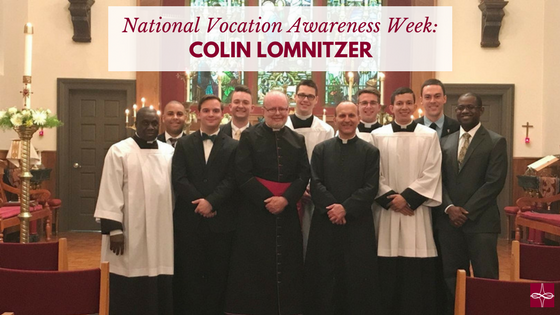
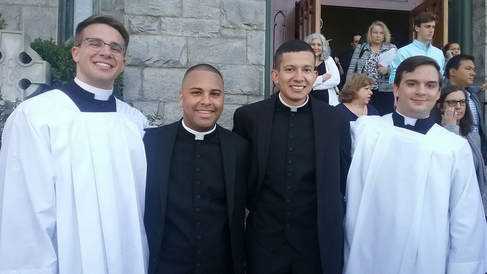
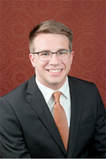
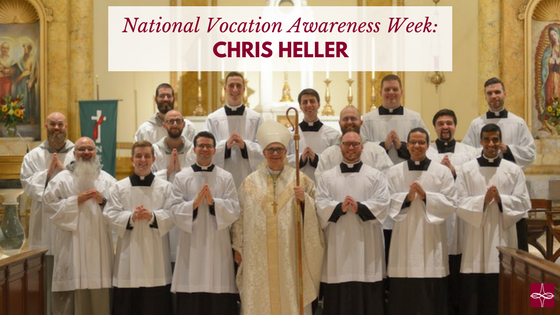
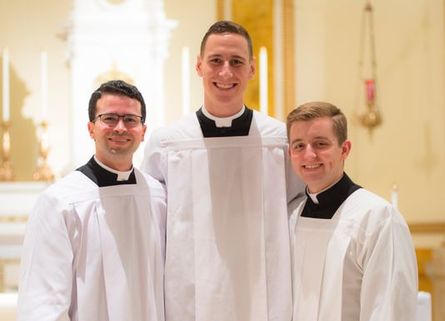
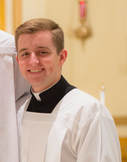
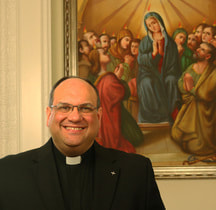
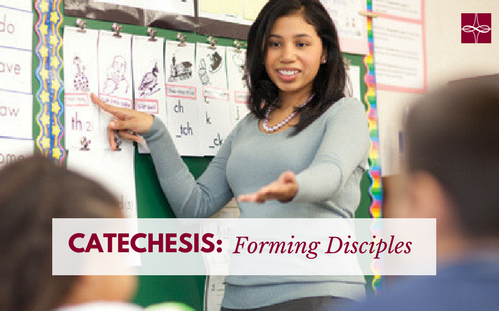

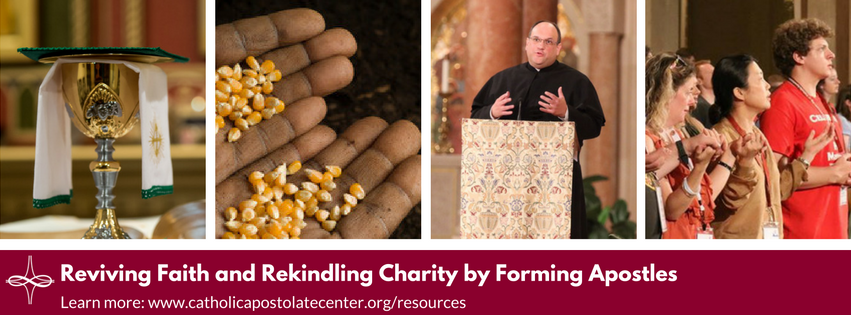


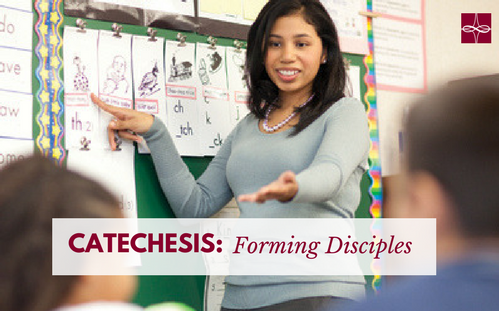




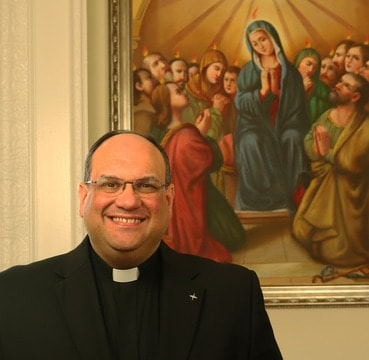
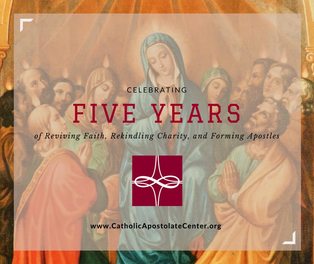
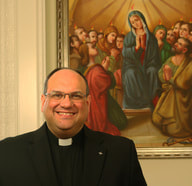

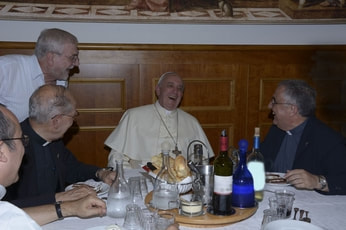

 RSS Feed
RSS Feed